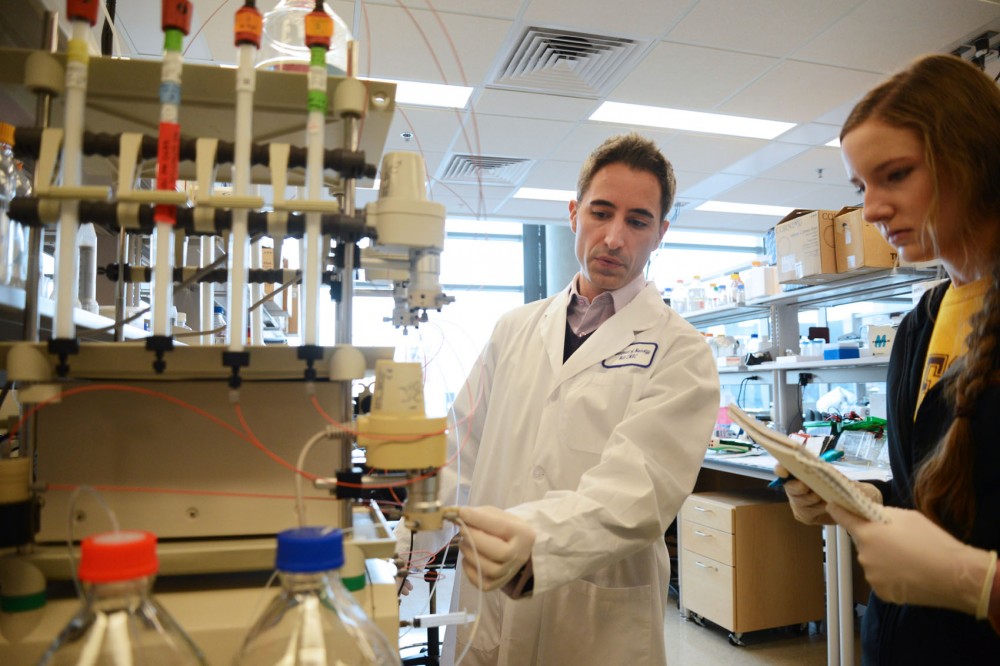Minnesota’s aging population is putting pressure on researchers of Alzheimer’s disease, which some lawmakers say highlights the need for more sources of funding for the studies.
State legislators recently introduced bills that would establish a grant program to help fund research on Alzheimer’s and other dementia-related diseases. University of Minnesota researchers say the proposed source of funding could potentially benefit their studies, which they say are crucial because of population trends.
“If we don’t do anything with the aging population … we might arrive at a situation where we might bankrupt our health care system,” said Sylvain Lesné, University assistant professor and researcher at the N. Bud Grossman Center for Memory Research and Care.
The costs related to Alzheimer’s care and treatment totaled $214 billion nationally last year, according to the Alzheimer’s Association.
Lesné said efforts to understand the disease are becoming more crucial because of Minnesota’s aging population.
The number of Minnesotans age 65 or older is projected to double between 2010 and 2030. And one in nine Americans of that age group has Alzheimer’s disease, according to the Alzheimer’s Association.
“Alzheimer’s is such a significant disease, and it is a tsunami waiting that we are heading into,” said Sen. Carla Nelson, R-Rochester, lead author of the legislation.
Bills have surfaced in both the Senate and House of Representatives that would establish a panel of medical and research experts that would decide — in conjunction with the commissioner of health — which organizations would receive the grants. Both public and private institutions would be eligible to apply.
Nelson said researchers will have to look at the causes and cures of dementia diseases, as well as their treatment and prevention, in order to receive grant funding.
The Senate’s bill would allocate $5 million in both 2016 and 2017 for dementia research, and Nelson said an additional $750,000 in grant funding would be available annually in an effort to connect more caregivers and patients with resources.
Since 2005, the University center’s researchers have been studying the underlying mechanisms of Alzheimer’s, identifying diagnosis and prevention strategies and developing treatment solutions.
Currently, Lesné and other researchers study molecules believed to contribute to the development of Alzheimer’s. Nelson said the bipartisan support of the Senate bill so far indicates that Alzheimer’s disease is an important issue on both sides of the aisle.
University senior Asiyah Aziz works at a group home where the residents predominately suffer from dementia.
She said her time working with patients has provided her a firsthand perspective on how Alzheimer’s affects not only patients, but families.
“It’s almost harder dealing with the families because you know how much they’re struggling,” Aziz said.
She said more research on the disease should be performed, but statewide workforce shortages in the health care industry also need to be addressed.
Lesné said the state’s highly-qualified researchers and advocacy organizations make it well-positioned to address Alzheimer’s.
“Now, bringing the third element, which is legislative support, [the proposed grant program] could definitely make Minnesota one of the primary leaders in trying to fight this disease firsthand,” Lesné said.

















